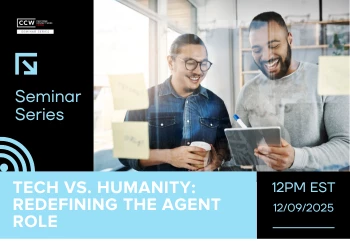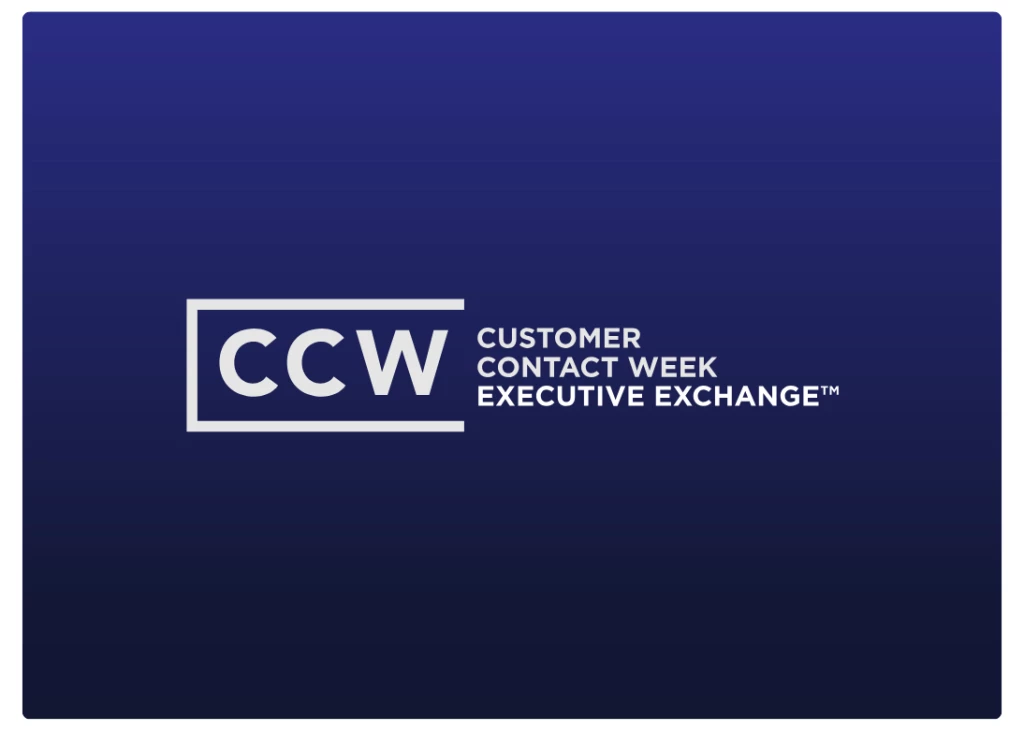Customer Contact Lessons From Destiny's Child
Add bookmarkMichelle Williams will deliver a hotly anticipated presentation at CCW Austin, taking place September 16-19.
It will not, however, be the first time the Grammy-winning artist shares insights with the customer contact community. While making music in the iconic Destiny’s Child, Williams and her group mates routinely offered words of wisdom to contact center and customer experience professionals.
Don’t remember their lessons about customer centricity and agent empowerment? Don’t worry – we’ve compiled a list of Destiny’s Child’s most contact-center-oriented hits.
Hit: Survivor
Lesson: Respect the empowered customer
There was a day in which brands felt they were in control. Confident that they were the best (if not only) option, they had absolutely no reason to fear customer churn. Customers who opted to leave would only be hurting themselves.
Those days are over. Surely speaking from the perspective of a customer, Beyoncé reveals that severing ties with a complacent business did not leave her sad, weak or helpless.
She has no need to crawl back to the brand she ditched, because she found a brand that delivers the experience she deserves. They personalize interactions. They create frictionless journeys. They demonstrate appreciation for her feedback.
They, above all, recognize that she is an independent, empowered customer able to engage with businesses on her terms. She is a “Survivor,” and she is thriving.
“If I surround myself with positive things, I’ll gain prosperity,” sings Michelle Williams, who is clearly talking about achieving satisfaction, happiness and value as a result of finding a brand experience that works for her.
Hit: Bootylicious
Lesson: Self-service for transactions, Agents for complex issues
Thanks to the rise of self-service, agents no longer have to worry about plain customers with basic issues. Those customers will process their boring transactions on their own.
The agent, instead, should be focusing on the baddest customers whose issues are unique and thick with “jelly” (music industry slang for complexity, obviously).
As “Bootylicious” articulates, the majority of agents are not yet prepared for this transition. Due to their limited training and unintuitive systems, they are unable to rise to the occasion. They are left “shook up and scared” whenever they encounter issues of depth.
Customers like Beyoncé, Kelly Rowland and Michelle Williams, in turn, have no choice but to declare, “I don’t think they can handle this.”
Hit: Emotion
Lesson: Monitor sentiment as you support customers
“Emotion” was first written by Barry and Robin Gibb of Bee Gees fame, but it was Destiny’s Child who gave the song its clear contact center slant.
Companies constantly bombard customers with marketing texts and sales calls with the purpose of closing deals, upgrading subscriptions and padding revenue. But what happens when the deal is already done? More importantly, what happens when the experience goes wrong – and becomes upsetting and painful for the customer?
Sadly, many brands vanish. They subject customers to curt, dismissive, transactional support experiences that lack the enthusiasm and passion of the sales and marketing processes. They cease their effort to build emotional bonds with customers.
“Where are you now … now that I need you,” wonders the group, echoing an all-too-common (and unfortunate) customer situation.
The lack of support ultimately causes emotion to take over, which further exacerbates the situation. Far too few brands successfully track, let alone work to manage, customer sentiment, which in turn leads to additional hostile and unproductive reactions. Customers do not receive great experiences, do not encounter empathy, and in turn, have no reason to continue supporting a brand. They either leave or direct their anger at the agent, whose satisfaction suffers as a result. Everyone loses.
Hit: Say My Name
Lesson: Seek customer advocacy, not just satisfaction
Recorded before Michelle Williams joined Destiny’s Child (though she does appear in the music video), “Say My Name” nonetheless remained a staple once she did. More importantly, it remains a powerful example of contact center thought leadership.
Far too many contact centers settle for decent satisfaction scores and retention rates. As long as customers answer “uh huh” on satisfaction surveys — and periodically come back — they believe everything is rosy.
Much like the women of Destiny’s Child, the strongest, most successful contact center leaders are not merely looking for silent support and approval. They seek raving fans who are not seeing any other competitors on the side. They seek passionate advocates who are unafraid to profess their love before the entire world.
If your experience is not eliciting that degree of loyalty and advocacy, it is reasonable to fear another company catching the eyes of your customers. It is unreasonable to celebrate your CSAT score as proof that your experience is superb.
Michelle Williams will headline CCW Austin’s celebrity fireside chat at 8:20AM on Tuesday, September 17.
There is a slight chance this article took some satirical liberties with Destiny's Child's lyrics.
























